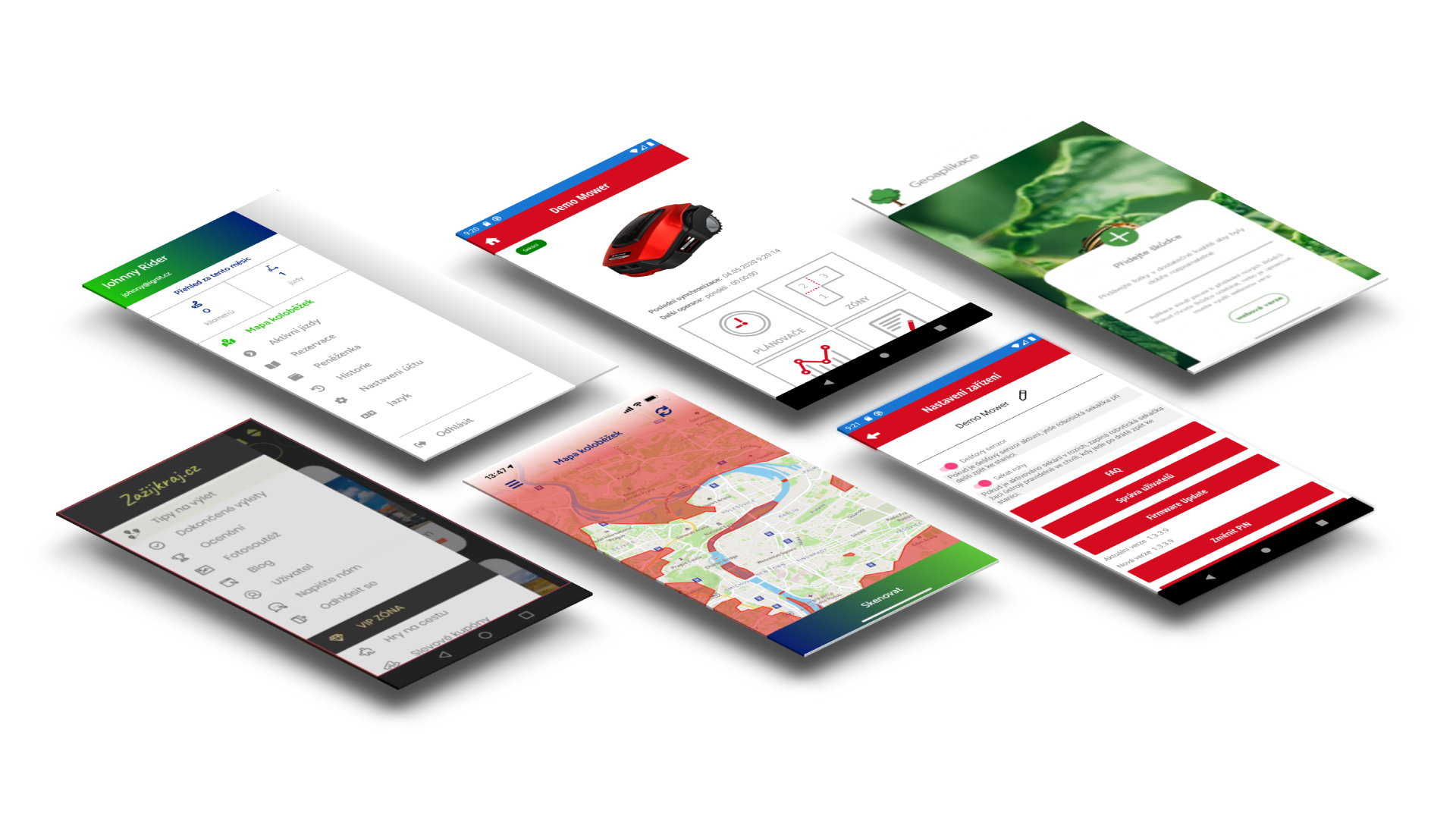As users, we don’t need to analyse applications in detail. When we order food delivery, we simply install a mobile app . When we need to get to a document at home or in a meeting, we simply log into our Office 365 account and look at it in the browser. But what if we want to create a mobile app or a responsive website? It is worth thinking about which route to take before developing your own app.
Mobile apps
Few people can imagine a world without mobile apps anymore. They serve us as a handheld navigation, timetables, alarm clocks, players, dictionaries or banking. But alongside these proven uses, many new ideas are emerging all the time, and not all are suited for mobile app development. What are their pros and cons?
+ Control and speed
The user experience of web apps can sometimes be frustrating, especially if they’re not optimized. An example of this is the growing popularity of food delivery apps. Better UX design and its simplicity makes ordering on mobile more enjoyable.
In addition, mobile apps can store some of the data on local storage and do not work with an itermediary in the form of a web browser. Loading is thus faster compared to web apps.
+ Work offline
Connection loss is a problem that mobile apps know how to deal with. Some apps or timetables, for example, work offline and can often help a lot when travelling. But any other application can work offline and sync local data with the online database when reconnected.
+ Using the phone’s features
It is no secret that mobile apps have access to smartphone features as camera, microphone, location or push notifications . These can be used in a variety of ways. From unlocking the lock on your bike after a QR code is scanned, to automatically setting an address when ordering a taxi service or food delivery, or notifications on the phone’s desktop to alert the user to new features in the application.

Mobile applications from MEMOS Software
– Installation needed
The more apps you have installed, the more your smartphone’s performance slows down. Users are becoming increasingly aware of this, and instead of using an app to clean up a messy phone, many have gotten into the habit of installing only the necessary apps. If they use the app once a year, the web app wil be enough, even though the controls may not be quite perfect.
– Price and time consumption
Mobile apps usually need to be developed for iOS and Android separately, which takes more time, and mainly increases the development budget. This is because you need to program in a different language for each operating system. For Android, programming is done in Java, while Swift is used on iOS.
For example, the Xamarin shared platform, which allows us to program both iOS and Android apps in one code, can help with cost savings.
Responsive web
If you don’t have an internet connection problem at the moment, you can access the reponsive web on any device. Anytime, anywhere. A web-based solution is also easier in terms of development. But sometimes a simpler solution may not be enough. So it is definitely worth considering the pros and cons for web apps too.
+ Availability
The undeniable advantage of the web is that it is instantly available on any device without the need for installation. In addition, it is indexed by Google and other search engines and it’s extremely easy to send a link to the site.
+ Cost and time
Thanks to responsive frameworks like Bootstrap, web apps, unlike mobile ones, don’t need to be programmed for each platform separately. This makes development faster and cheaper.
– Control and speed
Honestly, how many apps you use on your mobile or tablet on a daily basis are web-based? In a web browser window, it is easy to accidentally click on the back button or a different page than we intended. Sometimes we even lose our work because of this. Other times, we lose our patience because of slow loading times. There is a reason we have apps installed that we use regularly.
– Connection dependency
Of course, a web solution cannot do without an internet connection. This can be limiting in some situations, and again, you may lose your work because of it.
– Absence of phone features
Some solutions, such as bike sharing, simply can’t do without smartphone features. If you need any of the features in your app, the web app is passé.
Did it help to add up the pros and cons? The scales may be even when deciding between a mobile application and a responsive website. Often, the two approaches are even combined.
If you are not sure, consult with specialists and set up a no-obligation meeting. We will be happy to share experiences from other projects.



 CZ
CZ BACK
BACK